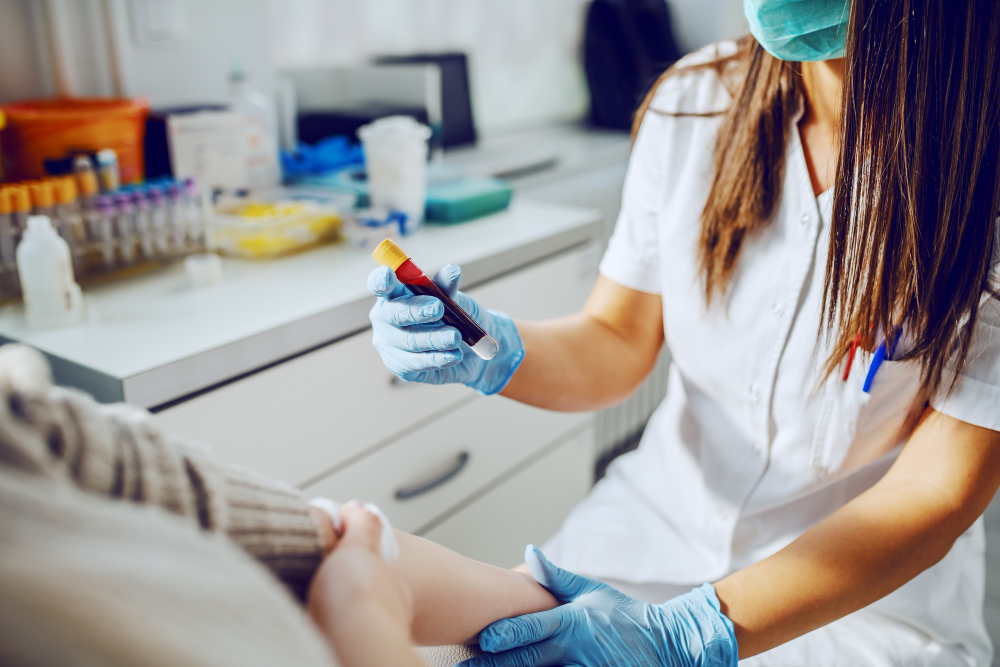What Are Fasting Tests?
Fasting tests are blood tests that need you to avoid eating or drinking (except water) for a set time. Usually, this means not eating for 8 to 12 hours before the test. Fasting tests help doctors check your blood sugar, cholesterol, and other important health markers. Because food can change these results, fasting gives a clear picture of your health. Many people think fasting tests always mean early morning clinic trips, but that is changing.
Why Are Fasting Tests Important?
Fasting tests help doctors find health problems early. For example, they can spot diabetes, high cholesterol, or liver issues. When you fast, your blood shows your body’s true levels. This makes the test results more accurate. As a result, your doctor can give you better advice. Early detection often leads to better treatment and fewer health problems later.
Common Types of Fasting Tests
Several blood tests need fasting. Some of the most common include:Fasting Blood Sugar Test: Checks for diabetes or prediabetes.Lipid Profile: Measures cholesterol and fat levels in your blood.Liver Function Tests: Assesses how well your liver works.Basic Metabolic Panel: Looks at blood sugar, calcium, and kidney function.
Doctors may order these tests if you have symptoms like tiredness, frequent urination, or unexplained weight changes. Sometimes, they use fasting tests to monitor ongoing health conditions.
How Fasting Tests Are Done
First, your doctor will tell you how long to fast. Usually, you stop eating after dinner and skip breakfast. You can drink water, but avoid juice, coffee, or tea. Next, a nurse or technician takes a small blood sample, often from your arm. The process is quick and usually takes less than five minutes. After the test, you can eat and drink as normal. Because fasting can make you feel weak, it is best to plan your meal soon after the test.
Modern Options: At-Home and Flexible Fasting Tests
Now, you do not always need to visit a clinic early in the morning. Many labs offer fasting blood test at home services. A trained professional can come to your home to collect your blood sample. This means you can fast overnight and get tested without leaving your house. Some clinics also offer flexible hours, so you can schedule your test at a time that suits you. These options help you avoid the stress of early morning fasting tests and long waits at the clinic.
Tips for Preparing for a Fasting Test
Proper preparation helps you get the best results. Here are some tips:Follow your doctor’s instructions about fasting time.Drink water to stay hydrated, but avoid other drinks.Take your usual medicines unless your doctor says otherwise.Plan your test for a time that fits your routine.Bring a healthy snack for after the test.
For more details, you can check trusted sources like the CDC or WHO.
Frequently Asked Questions
Can I drink water before a fasting test? Yes, water is allowed and helps keep you hydrated.What if I forget and eat before my test? Tell your doctor. You may need to reschedule the test.Are at-home fasting tests accurate? Yes, if done by trained staff and sent to a certified lab.How do I prepare for fasting tests? Follow your doctor’s advice and avoid food or drinks (except water) for the set time.Is it safe to take medicines before a fasting test? Usually, yes. But always check with your doctor first.
Conclusion and Next Steps
Fasting tests are a key part of staying healthy. Now, with options like fasting blood test at home and flexible hours, you can avoid early morning clinic trips. Always follow your doctor’s advice on how to prepare for fasting tests. If you have questions or need a test, consult a healthcare professional for personalized advice on fasting tests.


